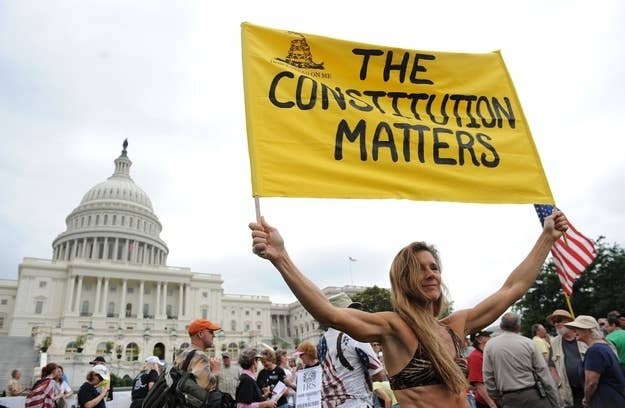
Browse Change.org, the online petition platform, and you'll find appeals that would sound familiar to anyone who keeps up with the news: closing the detention facility at Guantanamo Bay, say, or keeping junk food out of school lunches.
You'll also find petitions such as "Riot Games: Bring Sword of the Divine Back to Summoner's Rift and Twisted Treeline", the body text of which begins as follows: "Attack Speed and Armor Penetration on the Fields of Justice have been receiving harsh nerfs." That's not a joke; it refers to a video game, specifically League of Legends, the online action/strategy game that is the most popular in the world.
And you'll find a lot of these petitions. While Change.org does not disclose hard numbers, they say that video game-related petitions are easily among the most frequently posted to the site, and among the most represented in terms of victories, or petitions won. (The Sword of the Divine was restored.)
It's no accident that gamers have found and embraced a tool that is normally used by world-healers and do-gooders. Hardcore gamers online, organized and passionate, increasingly resemble and behave like the members of an interest—an advocacy—group.
It's a group that just won their biggest battle yet. Following Microsoft's decision yesterday to overturn deeply unpopular policies for their forthcoming console, the Xbox One, the mood in gaming subreddits, forums, and enthusiast sites was triumphant. And why not? In the month since Microsoft announced the console, the thousands of fans and writers who frequent these sites have engaged in a sustained, quasi-organized campaign of complaint, petition, editorializing, and Facebook ASCII vulgarity. In no small part because of these efforts, they got their way.
That cycle—a perceived injustice, followed by the fomentation of widespread outrage, and the organization of that outrage into a formal plan of action designed to counter the injustice—will sound familiar to anyone with a passing knowledge of advocacy groups. And that model may well be the best way to think about the hardcore gaming community today.
The burning conviction that marks the people driving most advocacy groups is certainly there. Says Charlotte Hill, the communications director of Change.org, "There is the same level of passion and often frustration expressed on gaming petitions as you would see regarding a much larger social justice issue".
Of course, unlike traditional social justice causes, gamers lack major legacy advocacy organizations; there is no gamer ASPCA or ACLU or Sierra Club, no office on K Street for coordination and planning. That's where, according to Hill, Reddit and the enthusiast game journalists come into play. It's through these de facto advocacy groups that the traditional work of raising awareness, rallying support, fundraising, and planning demonstrations/collective actions takes place.
Hardcore gamers, a community of people who take a sort of pride in their marginalization, also bear the characteristics of an advocacy group that's based around identity politics. And maybe not a liberal identity politics. This community tends to watch closely for any sign of the erosion of their cherished way of life (game trading, physical game discs, offline single-player gaming), often cast as fond childhood memories from a time when "things were simpler". That's a distinctly American and religious narrative—declensionist, lapsarian, apocalyptic—and it's a powerful one.
The thing that may ultimately hold this segment of gamers back from organizing into something more lasting, though, is the lack of a universal, relatable common cause. Many gamers care only about changes to the specific game that they hold dear. Gaming petitions on Change.org range from the arcane and the regional (Australian gamers are incensed that the actor playing the title character in the forthcoming Mad Max game may be American), to the huge and reasonable (more than 100,000 people have signed a petition imploring Rockstar to bring Grand Theft Auto V to the PC). It's very hard for anyone who is not a gamer to sympathize with these causes (as opposed to say, someone who doesn't outwardly identify as an environmentalist still supporting the preservation of nature).
But these individual, selfish interests—which we saw align spectacularly yesterday—can still prove a force. Hardcore gamers may feel such a personal attachment to their games that they come to consider themselves entitled to representation, a kind of citizenship in the nation of games. It's Paul Ford's idea of the web as customer service platform ("Why Wasn't I Consulted") applied to an entire segment of media consumers. Says Hill, "Here is what I hear over and over again from gamers: 'We love these games, they are integral parts of our lives, and we deserve input into what games look like and how they're distributed. We should be part of their development and distribution.'"
